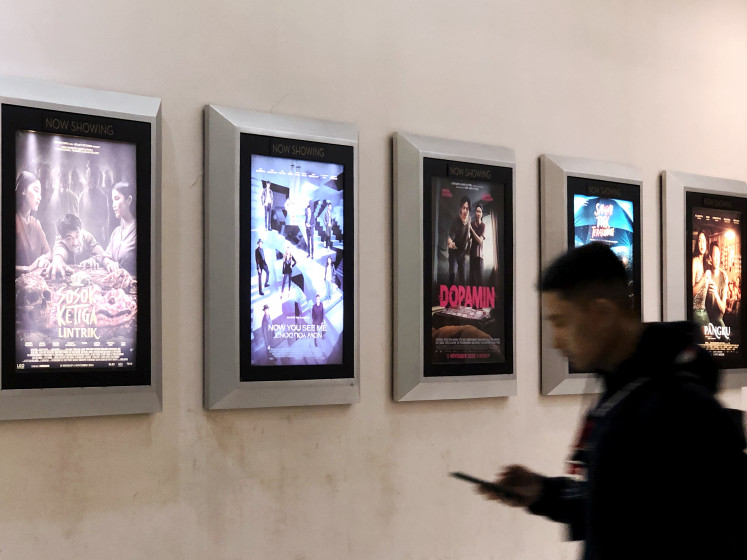Popular Reads
Top Results
Can't find what you're looking for?
View all search resultsPopular Reads
Top Results
Can't find what you're looking for?
View all search resultsRegency proves how transparency leads to wealth
Former bureaucracies have stubbornly resisted supplying the public with government information, but a number of regional governments, including the Lebak administration in Banten, are reaping rewards for their openness
Change text size
Gift Premium Articles
to Anyone
F
ormer bureaucracies have stubbornly resisted supplying the public with government information, but a number of regional governments, including the Lebak administration in Banten, are reaping rewards for their openness.
Lebak Regent Mulyadi Jayabaya told public officials attending a discussion in Jakarta on Thursday his administration had increased regional revenue seven-fold and investment by 35 times since it enacted an ordinance requiring government agencies to ensure the public had easy access to information.
Formerly a businessman, Mulyadi said he knew the plight investors had to go through in applying for business permits.
"At local government offices today people can see a board hanging on the wall, displaying the number of permits required to establish a new business and the price list and where the money flows," Mulyadi said.
The initiative proved fruitfull. Investment skyrocketed to Rp 6 trillion this year from Rp 168 billion in 2004, while regional revenue climbed to nearly Rp 80 billion from Rp 10.7 billion in 2004.
"Transparency has bolstered investors' trust in the local economy," Mulyadi said.
"I used to be a businessman, so I learned to establish policies that do not burden the business sector."
Under Regional Ordinance No. 6/2004, the public is allowed to monitor regional budgets, including spending and revenue.
The bylaw requires all public officials in the regency to provide all information requested by members of the community without exception.
Officials who hide information or charge money to share it will receive a six-month suspension.
The bylaw on transparency inspired the drafting of a bill on public access to information that was passed by the House of Representatives in April this year.
However, a debate continues to be waged over a section of the bill that allows state secrets to be withheld from the public.
The government is drafting regulations to implement the law, which will be ratified in 2010.
Director General of Communication Services and Information Dissemination at the Information and Communications Ministry, Freddy H. Tulung, said the government regulation would determine how long the government was allowed to withhold secret information as well as the compensation for individuals whose rights to see information had been denied.
"The principle of the law is maximum access but limited exemptions. So, there are still some areas of information that the government considers secret," he told the forum.
The government is now familiarizing the law with government officials and the public.
"Though, we must admit that changing a paradigm is hard because people, especially government officials, maintain a feudalistic way of thinking," Freddy said.
"By giving the public access to information, it will accelerate efforts to prevent corruption and nepotism and promote good governance."










